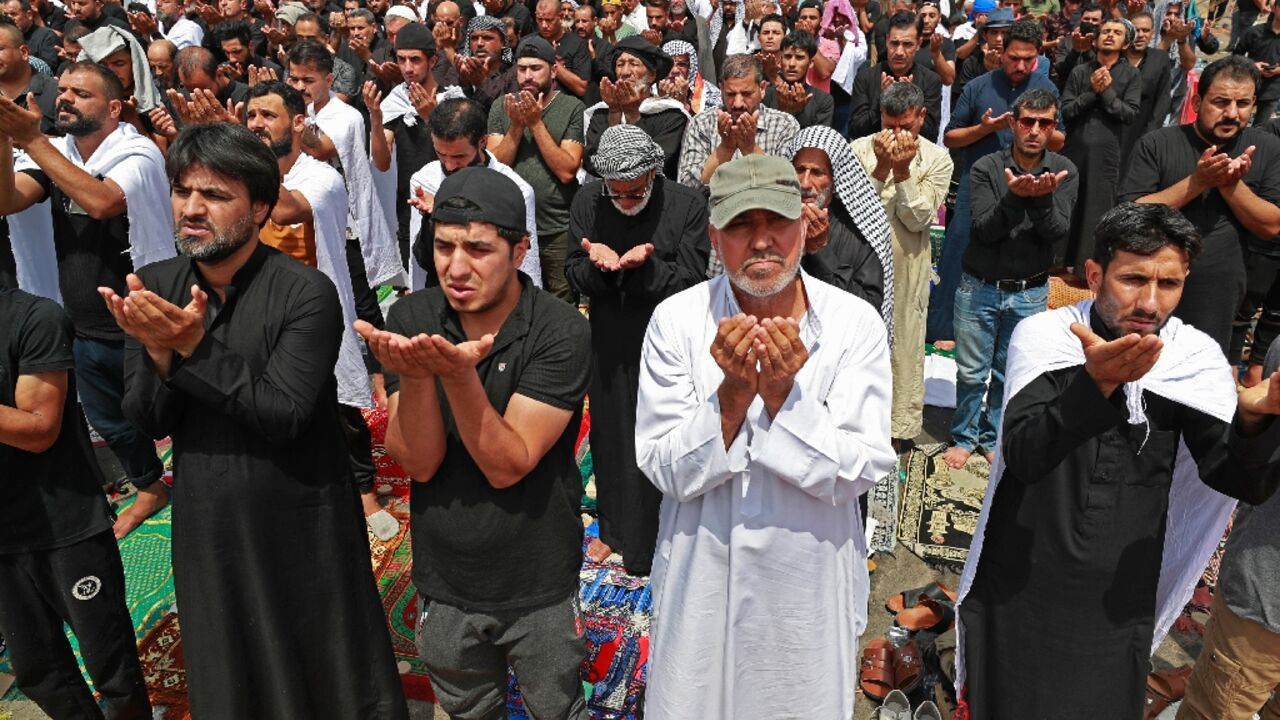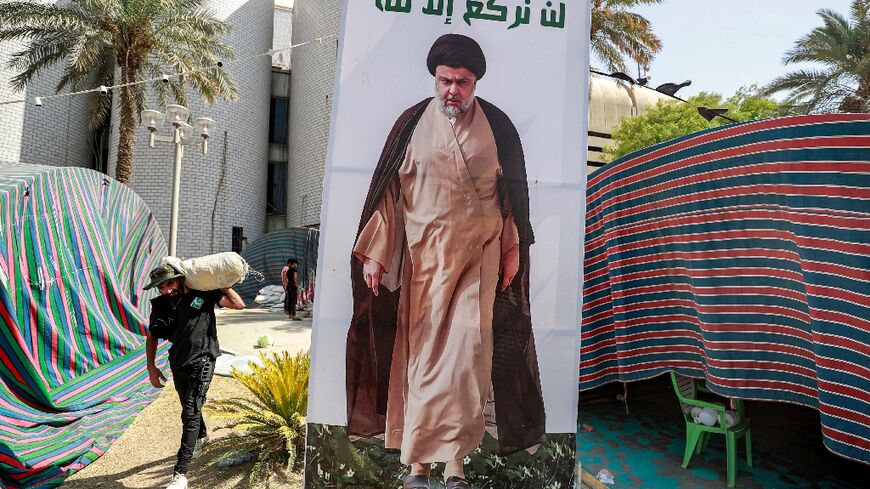Iraq's Sadrists refile call for judiciary to suspend parliament

Populist Shiite cleric Moqtada Sadr's camp on Friday refiled a petition for Iraq's judiciary to suspend parliament to clear the way for fresh elections amid a months-long political deadlock.
A source within the judiciary said it would give its response on Tuesday to the second such motion within a month submitted by the Sadrists.
At weekly Friday prayers near parliament attended by thousands of Sadr supporters, an aide to the cleric urged the justice system to pay heed to his calls.
"I will give you some advice," Mohaned al-Mussawi, a Sadr loyalist, said in a sermon on Friday. "We expect the judiciary to confirm the (people's) rights and give hope to the people".
"We will not abandon our rights," he added.
The judiciary already said last Sunday that it lacks the authority to dissolve parliament as demanded by Sadr, who is engaged in a standoff with Shiite political rivals.
Followers of Sadr, in defiance of the rival pro-Iran Coordination Framework, have for weeks been staging a sit-in outside Iraq's parliament, after initially storming the legislature's interior.
On Tuesday, the Sadrists also pitched tents outside the gates of the judicial body's headquarters in Baghdad for several hours.
The judiciary, in its ruling on Sunday, said "the Supreme Judicial Council has no jurisdiction to dissolve parliament", citing "the principle of a separation of powers".
Under the constitution, parliament can only be dissolved by an absolute majority vote in the house, following a request by one-third of deputies or by the prime minister with the approval of the president.
Nearly 10 months on from the last elections, Iraq still has no government, new prime minister or new president, due to disagreement between factions over forming a coalition.





